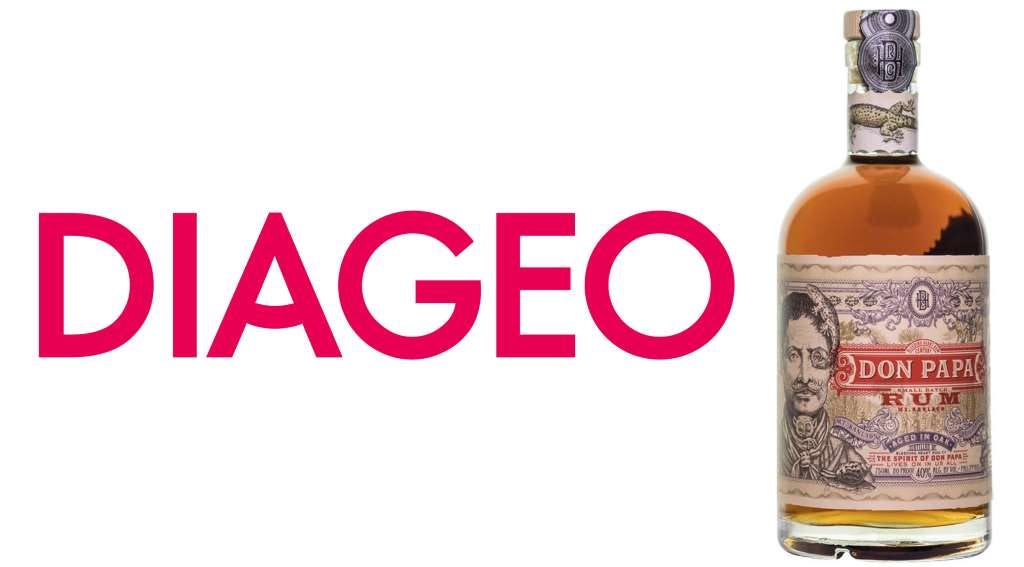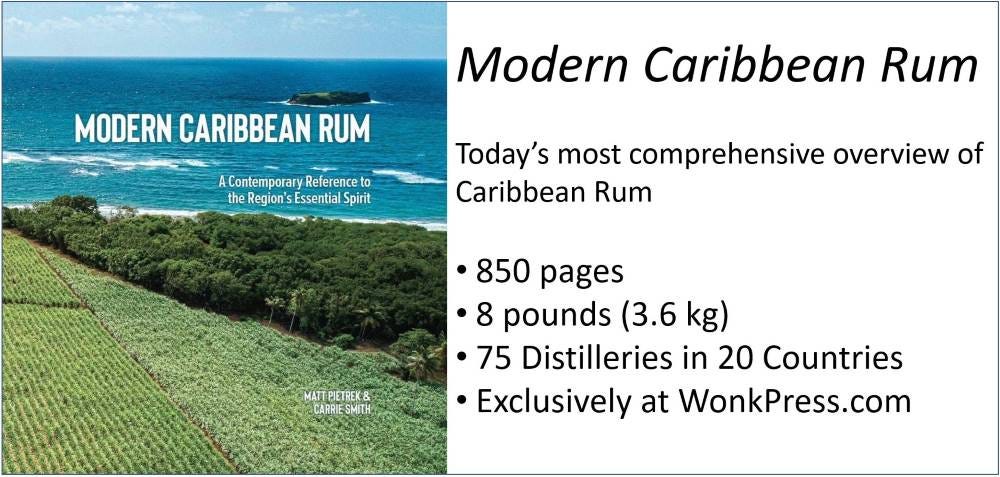Thoughts on Diageo's Don Papa Purchase
Diageo announced today (Jan. 17th, 2023) that it has purchased Don Papa rum. Naturally, we might wonder what this means for the rum market, if anything.
First, some basics. Diageo is the world’s largest spirits conglomerate. Despite its highly stylized bottles, Don Papa is a relatively new brand, started in 2012 by Stephen Carroll, formerly of Diageo, LVMH, and Rémy Cointreau. The rum is made in the Philippines by Ginebra San Miguel. Diageo will initially pay USD 280 million for the brand, with up to another USD 190 million in the future, depending on Don Papa’s sales growth under Diageo’s umbrella.
Within the high-end rum enthusiast world, Don Papa draws little favor. Many believe that Don Papa’s rum contains additives such as glycerin and vanilla; Cyril Weglarz of DuRhum.com sent samples to a laboratory, and the results indicated they did. Likewise, a 2022 class action suit filed in Illinois stated, “The Product does not qualify as rum due to the addition of ingredients such as glycerin, vanillin, caramel color and added sugar, which alter its class and type. 27 C.F.R. § 5.155.” (This lawsuit’s state is currently unknown.)
Putting aside matters of taste regarding whether Don Papa is a premium rum, the IWSR defines a premium spirit as one costing between $22.50 - $30 and super-premium between $30 – $45. A quick scan of current pricing shows Don Papa “Small Batch” retailing for around $33 in the US, qualifying it as a super-premium rum by the IWSR definition.
Where will Don Papa fit in Diageo’s portfolio? Captain Morgan is Diageo’s biggest and best-known rum brand, and its mainstream expressions are in the under-$20 range. Higher on the price scale is Guatemalan-made Ron Zacapa, in which Diageo has a 50 percent ownership stake. Zacapa Centenario 23 retails for around $50, so at $33, Don Papa fits squarely between Captain Morgan and Zacapa in Diageo’s rum portfolio. For completeness’ sake, the rest of Diageo’s rum portfolio bears mentioning, even if their Brand Explorer page seems to omit them: Pampero and Cacique from Venezuela, Australia’s Bundaberg, and McDowell’s #1 Celebration from India.
Diageo’s move comes close on the heels of Brown-Forman’s purchase of Diplomatico and Pernod Ricard’s planned acquisition of Bumbu. Two data points don’t make a trend, but three suggest one forming. In this case, big spirits conglomerates making bets or doubling down on premium rum sales increasing faster than overall spirits market trends. That all three brands are (in)famous for alleged sweetening will bring eye rolls to some, but ultimately is of little concern to the new owners.
In the end, Diageo’s backing will undoubtedly increase Don Papa’s presence on store shelves, bringing things back to the debate over whether so-called “inauthentic” rums sold at a premium price help or hinder the fortunes of more “authentic” brands championed by enthusiasts. (To be clear, I’m absolutely rooting for authentic brands, but what I desire and what is often differ.)
At this moment, Diageo’s move is interesting, but it’s unclear if it will substantially change the rum market’s overall direction.





While most rum enthusiasts focus on the quality of product, the business of rum is based on the numbers. Some of the most accessible rums like Malibu, Captain Morgan and Admiral Nelson are not driven by a quality metric, but rather a quantity motive. While this may be discouraging to some, the rum category is doing quite well on all accounts and the number of savvy consumers has grown exponentially over the past two decades. This is not a problem, this is an encouraging trend in terms of quality rum being developed.
Consider a comparison to the movie business. Great art house films rarely make a handsome profit while cartoonish comic book themes rake in billions. Rather than condemning the big blockbuster films, true cinema aficionados simply focus on the artful expression of the cinematic medium, while the huge money-makers pay the bills and keep a huge industry working.
Thanks Matt for this. Unfortunately with the rise adulterated products, we as industry professionals have to acknowledge and educate our staff AND guests ultimately. This is something we do frequently in order to help spread awareness and interest in the smaller brands. It wasn't that long ago that the same occurred with tequila's DO status being threatened and reduced from 70% weber azul mandate to 51%. Again, education is crucial in this particular situation.